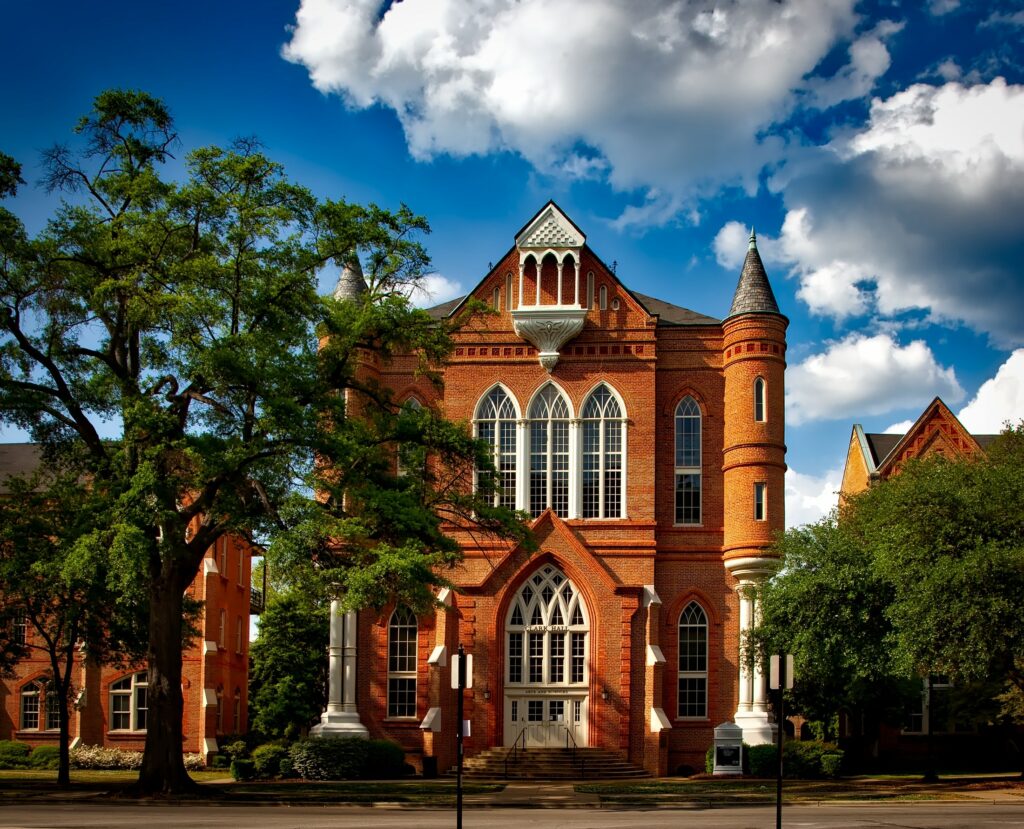Introduction
Palo Alto University (PAU) is a private university located in Palo Alto, California, which specializes in psychology and mental health education. Established in 1975, it has since become one of the top institutions in the country for studying psychology and related fields. With its unique focus on clinical training and hands-on experience, PAU has produced many successful graduates who have gone on to become leaders in the field of psychology. In this blog post, we will explore some fun facts about Palo Alto University and what makes it such a unique and exciting place to study.

The History of PAU
PAU was founded in 1975 as the Pacific Graduate School of Psychology (PGSP) by Drs. Phyllis and Nicholas Brunner, both clinical psychologists. The school began as a small graduate program with just 12 students, but it quickly grew in popularity due to its unique focus on clinical training and hands-on experience. In 2009, the school was renamed Palo Alto University to better reflect its broader mission and focus on psychology and related fields.
One of the most interesting facts about PAU’s history is that it was founded as a response to the lack of diversity in the field of psychology. At the time, most graduate programs in psychology were dominated by white males, and there were few opportunities for women and people of color to enter the field. Drs. Brunner saw this as a problem and wanted to create a more inclusive and diverse learning environment for students. Today, PAU is one of the most diverse psychology programs in the country, with over 50% of its students coming from underrepresented minority groups.
PAU’s Unique Programs
One of the things that sets PAU apart from other psychology programs is its focus on clinical training and hands-on experience. PAU offers a range of unique programs and opportunities for students to get real-world experience in the field of psychology. For example, the university’s Psychology Services Center provides low-cost mental health services to the local community, giving students the opportunity to work with real clients under the supervision of licensed psychologists.
PAU also offers a number of specialized programs that are not found at other universities. For example, the school’s Ph.D. program in Clinical Psychology with an Emphasis in Depth Psychology is one of only a few programs in the country that focuses on this particular approach to therapy. The university also offers a joint J.D./Ph.D. program in Clinical Psychology and Law, which prepares students for careers in both psychology and law.
PAU’s Famous Alumni
Over the years, PAU has produced many successful alumni who have gone on to become leaders in the field of psychology. One of the most well-known alumni is Dr. Phil McGraw, better known as “Dr. Phil” from his popular talk show. Dr. Phil graduated from PAU’s clinical psychology program in 1979 and went on to become a licensed psychologist and best-selling author.
Another notable PAU alumnus is Dr. Michael Eric Dyson, a prominent scholar and commentator on race, politics, and popular culture. Dr. Dyson received his Ph.D. in Religion from PAU in 1993 and has since become a prolific author and speaker, appearing regularly on news programs and in the media.
PAU’s Commitment to Diversity and Inclusion
As mentioned earlier, one of the founding principles of PAU was its commitment to diversity and inclusion in the field of psychology. Today, that commitment remains strong, and the university has implemented a number of programs and initiatives to support diversity and inclusion on campus.
For example, PAU has a dedicated Office of Diversity and Inclusion, which provides resources and support for students from underrepresented minority groups. The university also has a number of student-led organizations
that focus on diversity and inclusion, including the Black Student Union, the Latinx Student Association, and the Queer-Straight Alliance.
In addition to these initiatives, PAU has also established partnerships with a number of organizations to further support diversity and inclusion in the field of psychology. For example, the university has a partnership with the San Francisco-based Huckleberry Youth Programs, which provides mental health services to at-risk youth in the Bay Area.
PAU’s Collaborative Research Environment
PAU has a strong emphasis on research and scholarship, and the university encourages students and faculty to collaborate on research projects and publications. This collaborative research environment has led to many exciting and innovative projects in the field of psychology.
For example, PAU’s Center for m2Health (Mobile and Electronic Health) conducts research on the use of mobile and electronic devices in mental health treatment. The center has developed a number of innovative apps and tools that can be used to support mental health treatment and improve outcomes for patients.
PAU also has a number of research centers and institutes that focus on specific areas of psychology, such as the Center for LGBTQ Evidence-Based Applied Research (CLEAR), which conducts research on the mental health needs of the LGBTQ community.
Conclusion
In conclusion, Palo Alto University is a unique and exciting place to study psychology and related fields. With its focus on clinical training and hands-on experience, its commitment to diversity and inclusion, and its collaborative research environment, PAU has become one of the top institutions in the country for studying psychology. Its history, programs, alumni, and initiatives all contribute to its reputation as a leading institution in the field of psychology, and it will undoubtedly continue to produce successful graduates who go on to make a positive impact in the world.

